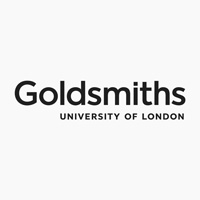fees waived
Digital Arts Computing, BSc (Hons)
Goldsmiths, University of London, United Kingdom
Ranking in UK
Fine Art
Art and Design
Art and Design
Costs
food & rent S$24.8K / year
Entry requirements
Scholarships
Limited quantity
Information
Code
Intakes
Website (External)
Programmes
Information
Duration
2028
This BSc in Digital Arts Computing at Goldsmiths equips students for careers in the creative industries by blending technology with embedded creative practice. It positions learners at the forefront of a rapidly expanding field, intersecting emergent technologies, fine art, and media culture. No prior coding skills are needed, as the program teaches programming fundamentals and fosters technical expertise alongside critical thinking and innovative problem-solving. Students build a professional portfolio through hands-on projects, public exhibitions, and specialized modules in areas like generative art, machine learning, VR, and sound processing. Applications are accepted only for first-year entry.The program consists of three core components: computational arts practice, critical studies of contemporary art, and technical computing. In Year 1, compulsory modules include Introduction to Programming, Critical Studies in Computational Arts I, and Creative Project 1. Year 2 features modules such as Creative Embedded Systems and Generative Drawing, plus optional electives. In Year 3, students complete a Final Project and Dissertation, alongside selected options. Assessment varies by module and includes coursework, examinations, group work, and projects.
The programme is made up of three components: Computational arts practice. This will combine technical and creative skills and will be taught by practising computational artists in the Department of Computing. Critical studies of contemporary art, to provide you with a space for examining the historical and critical context in which art is made, seen and understood. This will be taught in the Department of Art. Core technical computing, with a particular focus on audio-visual technology. This will be taught in the Department of Computing. Year 1 In your first year, you'll take the following compulsory modules: Introduction to Programming Critical Studies in Computational Arts I Creative Project 1 Graphics 1 Front End Web Introduction to Digital Media Sound and Signal 1 Year 2 In your second year, you'll take the following compulsory modules: Creative Embedded Systems Generative Drawing Critical Studies in Computational Arts II Digital Arts Project 2 You'll also take 30 credits/2 optional modules from a list provided annually by the department. These may also include the following: The Goldsmiths Elective Goldsmiths’ Social Change Module Year 3 In your final year, you'll complete the following compulsory modules: Final Project in Digital Arts Computing Dissertation in Critical Studies in Computational Arts You'll also select 1 or 2 option modules from a list provided annually by the department. Please note that due to staff research commitments not all of these modules may be available every year.
A local representative of Goldsmiths, University of London in Singapore is available online to assist you with enquiries about this course.

